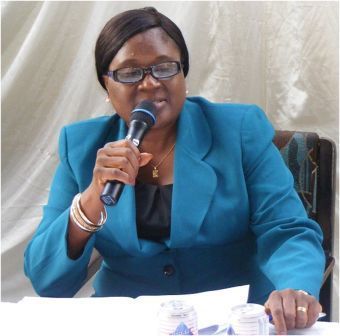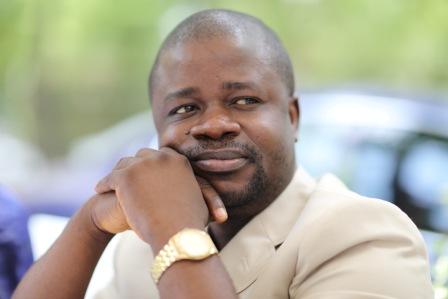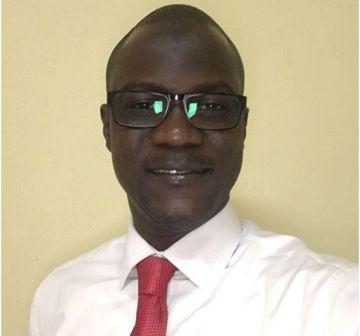Moving maritime administration a step further
About two years ago, I wrote an article on what was happening at the Sierra Leone Maritime Administration from the viewpoint of inadequacies in the administrative setup of the institution to corrupt practices that were taking place there then. There was lack of coordination, there was no proper governance and administrative mechanisms in place and as such the institution was not performing as was expected. I did state in one of my few articles on SLMA that over two years back that “… if there had been any serious coordination of functions within the SLMA or if functions were delegated to other staff within the Administration, there would have been effective and sober monitoring of all the coastal areas…”
Few months or so thereafter, the ACC intervened, taking into account President Koroma’s zero tolerance to corrupt activities. There was a trial and at the end the man at the helm of affairs at the Sierra Leone Maritime Administration (SLMA) “was on 11th July 2011 convicted of twelve (12) counts of misappropriation of public funds and one (1) count of failing to comply with a requirement under the Anti-Corruption Act 2008 by the High Court of Sierra Leone . When the media, including this writer and renowned journalist, David Tam Baryoh took up the SLMA issue, it was completely misconstrued by many, but they only came to realize later that it was done in the interest of the country. This actually came to light when the ACC investigation stated at SLMA. We were then vindicated!
The Sierra Leone Maritime Administration was created by an Act of Parliament in 2000 and it was done to establish an autonomous body for the registration of ships and other vessels, ‘the licensing and safety of maritime personnel and for the regulation and development generally of maritime, coastal and inland water transport …’ (Source: The Sierra Leone Maritime Administration Act 2000 . Section 10 of the Act outlines the functions of the SLMA and they include but not limited to; the regulation of shipping in inland waters, including the safety of navigation therein; to ensure the safety of navigation in the territorial sea; to cause to be investigated any incidents of maritime casualty and taking such action thereon as may be appropriate, et al functions. How far were these functions performed, remained a big question, taking into account how the administration was managed and administered. But that is history! The challenge is now with the Acting Executive Director, Alhaji Wurroh Jalloh to face the bull by the horn and ensure things move the way they should go, if and only if the SLMA is to fully contribute to national development from the viewpoint of revenue generation for the central government.
Last week, I had one-on-one discussion with the Acting Executive Director of the Sierra Leone Maritime Administration, Alhaji W. Jalloh to get firsthand information on what has been happening since he was promoted to that position few months ago, following the removal from office of the then Executive Director. I was particularly concerned about what has been happening at the administrative front, what has been done to decentralize the SLMA to other parts of the country, efforts being put in place to ensure staff motivation and to also know whether or not they have been getting the political support needed to run such an administration. Above all, I also wanted to know the reaction of Jalloh on the decision by HE President Koroma to get young and energetic people into the governance of the state, taking into account people like Sheka Tarawallie, Deputy Information Minister, Jalloh himself, youthful faces at the NRA like Ibrahim Sorie Kamara who is a Commissioner for the Domestic Taxes Department, Morlai Conteh who was my classmate at FBC and now a Board member of SLBC, among others.
The Sierra Leone Maritime Administration has always been faced with the challenge of ensuring, that Sierra Leone implements conventions ratified by the government, which from what Jalloh told me at up to 30…and most of them have not been domesticated. There is also the problem with capacity since I can’t hesitate to state that a messy situation was actually created at the SLMA, thanks to the intervention of the government through the anti-graft commission and the determination of the President. And as such, it would have to take time for one to, in the first place clean up that rubbish and then start the process of moving ahead. What used to exist was that the institution was like a one man affairs, and as such, this largely affected the human resource and human capacity of the institution to the point that it is only now that were beginning to see most positions being advertised so as to get the required workforce at the institution.
Come to think of it, what I have seen presently is a massive improvement in terms of how the institution is now managed. According to Alhaji Jalloh, ‘there has been an added human resource base in the SLMA…capacity has been improved in the field and the aspect of maritime safety has also been improved to the point that we hardly could now get reports of sea disasters…the aspect of search and res cue has also be improved upon and there has been a strong collaboration with the Joint Maritime Committee…’. But has the government, through the Ministry of Transport been supportive of the Sierra Leone Maritime Administration? To a very large extent, one can say, yes and this is even manifested in the government’s (through ACC) intervention to tackle some of the major challenges the institution was faced with. ‘There has not been any interference from the government and the government is actually supportive of us…when we wanted to move into this new building down here at Government Wharf, we had some challenges but the Ministry was actually by us and we got their support…’
The successes of an institution depend on a number of factors. There may be the need to get in place a working strategy that could be used as the roadmap or the working document that could be used to determine the path of that given institution. My understanding about happenings at the SLMA is that a ‘a strategic action plan has been developed for five years …and it is in line with other countries in the sub region in terms of experience sharing…’ and there are even plans to get management and Board members to go to other west African countries, say, Nigeria to take a look at what is happening with their Maritime administration. One thing that was also very lacking within the operations of the SLMA was staff morale, but now, by way of sending staff to international meetings, seminars and conferences, things have taken a different dimension. But has there been a real change? I asked Jalloh. ‘…we have tried to improve on that aspect…our staffs are now participating in international seminars and conferences in the sub region…this in a way will encourage them to give their best to the work…’
Revenue collection is paramount to the survival of a state. A government cannot survive on stones…no way. So when a given institution is not seen performing to the expectation of the government and that of the general public, it sounds alarming. At present the SLMA is putting things into perspective to see how they could improve on revenue generation for the central government as well as improve same, at the international level. With more mining companies coming into the country, the SLMA may as well want to look at the aspect of freight levy, since we are as a country expecting a lot of shipping activities. There are plans to get two more boats for rescue missions as the aspect of search and rescue is very important in the operations of the Sierra Leone Maritime Administration.
Decentralization is also now part of the governance process of the state, with MDAs decentralizing some of their functions to the local councils. In fact within the Ministry of Fisheries and Marine Resources, which is important to the operations of SLMA, there is now the process of decentralizing the boats registration exercise to the local councils. But what has the SLMA been doing in line with decentralizing its operations? ‘…we are very much aware that we cannot centralize all our functions in Freetown…so what we are now doing is to get offices in all the areas we are working…’ Jalloh, a graduate in Maritime Law and Policy and also awaiting his MBA from IPAM, has demonstrated good intentions for the growth of the institution he is heading but there is the urgent need for him to be supported by all and sundry especially the workforce to move the SLMA a step further.
In fact there is the need for him to be supported because what President Koroma has done, in appointing young people into positions of trust sounds great and indicates that there is a brighter future for us as a country. Unlike past governments, President Koroma has actually made a mark by getting young and energetic youths into the governance of the state…other would look out for the Professors, those with 12 PhD’s and 9 Mater degrees. But with President Koroma, he looks for qualification, of course, but he also brings everybody on board, including the youths. And for Jalloh, the fact that there are young people now in the governance of the state indicates that the President has trust and confidence in the young people, ‘but there is need for us to show that we can perform and we should live up to the expectation of the President and support his Agenda for Change and be part of the fight against corruption…’
Stay with Sierra Express Media, for your trusted place in news!
© 2011, https:. All rights reserved.







